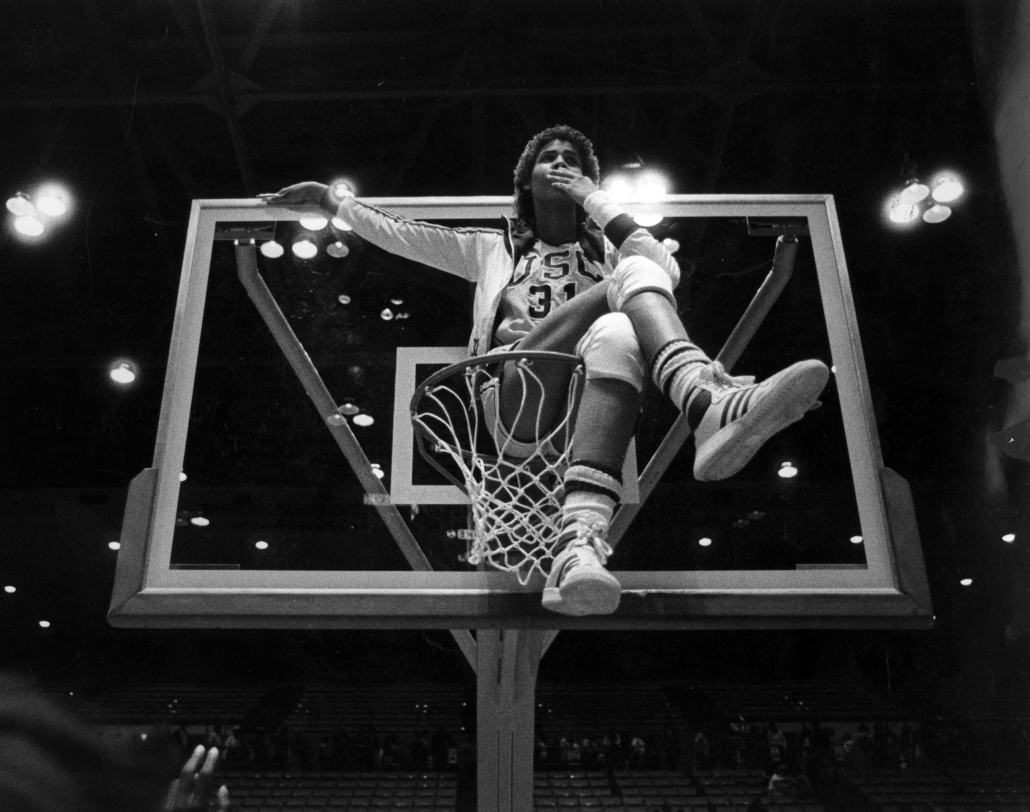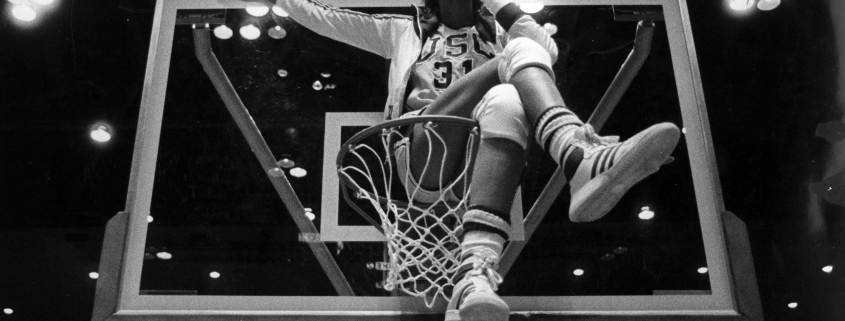‘Women of Troy’ will tell the legendary tale of USC’s 1980s women’s basketball teams

HBO Sports has partnered with Ringer Films and Triple Threat TV to produce “Women of Troy,” a documentary highlighting the success of the famed USC women’s basketball teams of the early 1980s.
Led by star players Cynthia Cooper and Cheryl Miller, the Trojan teams of the 1983 and 1984 seasons were thrust into the public spotlight. They had immense, unprecedented star power and success at a time when women’s sports, especially at the collegiate level, were largely off the radars of most sports fans.
To many members of the women’s basketball community, the popularity and attention commanded by these dominant, multi-national-championship-winning teams paved the way for women’s sports to become more widely recognized and respected, eventually leading to the creation of the Women’s National Basketball Association, or WNBA, in 1996.
Gary Cohen, the owner of Triple Threat TV who assisted in the production of the film, spoke with the Daily Trojan about why the documentary was produced and what the production team intended to convey through it.
Daily Trojan: What can fans of the team or people who lived through these teams’ success expect to get from this documentary that they don’t already know?
Gary Cohen: Well, a lot of that comes down to the storytelling approach. So let’s assume you were one of the women on this team. You know everything there is to know about this team, what you don’t know is you don’t know how Alison [Ellwood], our director, and the storytelling team chose to tell the story. And in essence, the premise of the film is that this was an extraordinary team that provided the bridge from the past to the present, that really leaped the game forward in terms of their talent and their attitude and their skills — and in so doing, created the possibility that women’s basketball was more than just a marginal sport, and ultimately this was an important step in the evolution of the sport that made the WNBA possible.
DT: Was USC the school that you felt provided the most accurate representation of what you wanted to convey? Why tell the story now?
Cohen: Yes, it was USC, but it wasn’t USC — it was these women, and specifically, the story is really the story of Cheryl and Cynthia. If you lived through that era, Cheryl was a transcendent talent. She played a sport that nobody cared about, and she made people care about her and know about her even if you didn’t know or care about the sport. She was that good, she was that charismatic.
Cynthia was a supporting player and yet, when the WNBA came along 12 years after they were both done at USC, Cheryl by virtue of injury was nowhere to be found, Cynthia became the leading lady and Cynthia dominated the WNBA the first four years of its existence. The fact that they were teammates and they came up together in the game at USC is really the essence of the story.
And obviously the rest of the team too, the McGee twins — and the McGee twins are sort of lost in the bright lights that have to be shined on the Hall of Fame talents — but those were two extraordinary players. And so it was kind of an all star lineup, and they won two national titles, and they really sort of changed the way people looked at women’s basketball and made things possible for all the girls and women that came after them.
DT: You’re heavily involved in sports and you have been for a long time, but did you learn anything new from producing a piece like this, or is there anything you really felt like you wanted to share?

Cohen: Yeah, the biggest thing I wanted to share was a sense of obligation to women’s sports enthusiasts. You know, when I started, every time you do a film or a documentary, you feel a tremendous sense of obligation to the people that you’re portraying. This is their story and you’re telling it, and so when we did this, we knew we had to get it right for Cheryl and for Cynthia and the McGees, and for Rhonda Windham and Juliette Robinson and Linda Sharp.
That was our obligation and that’s always the case. In this case, the additional burden was getting it right for the whole community of women’s basketball because there haven’t been a lot of high-profile films made about women’s basketball and this one — if we got it right — will live on for a long time within the community as an important statement of “This is where we came from.”
So one thing that’s worth you knowing, our director Alison Ellwood, who is at Sundance right now, she is a major figure in the documentary world, a brilliant storyteller and for her this is sort of a statement of purpose. This is a female empowerment story that’s important and speaks to so many larger things about what women are capable of if given the opportunity, even in sports, a world where we think of women’s achievements in a different light than we think of men’s achievements.
DT: That was supposed to be my last question but I’m just kind of curious, how was sourcing for a piece like this? Were people really eager to be involved or was it difficult to find people who would be credible enough to touch upon this?
Cohen: Oh no. The women’s basketball community is a powerful community, Cheryl and Cynthia and those USC teams are profoundly respected. So every time I reached out to somebody to gauge them about the project, they were profoundly supportive and went out of their way to make time and to become part of it, so we have a Hall of Fame lineup. Our interviews are with Geno Auriemma and with Doris Burke, and with Jackie MacMullan, Ann Meyers Drysdale. The people that are in the film that weren’t on that team are kind of all Hall of Famers, and so it really lends a gravitas to the film that makes it resonate.
“Women of Troy” is set to air on March 10, ten days before Women’s March Madness begins.

